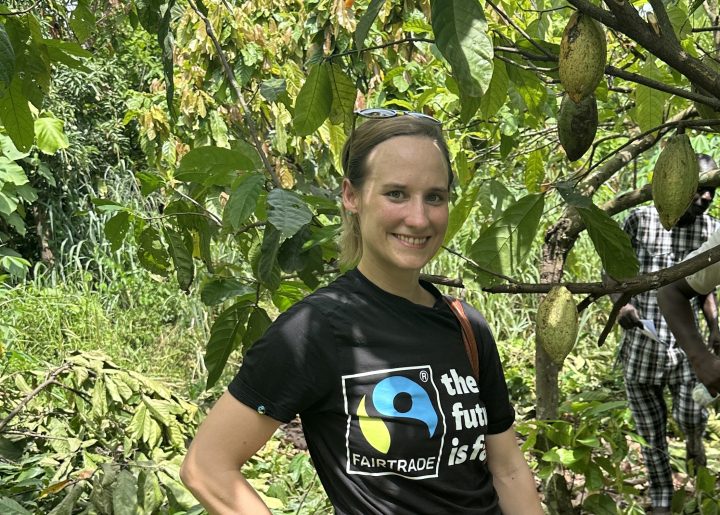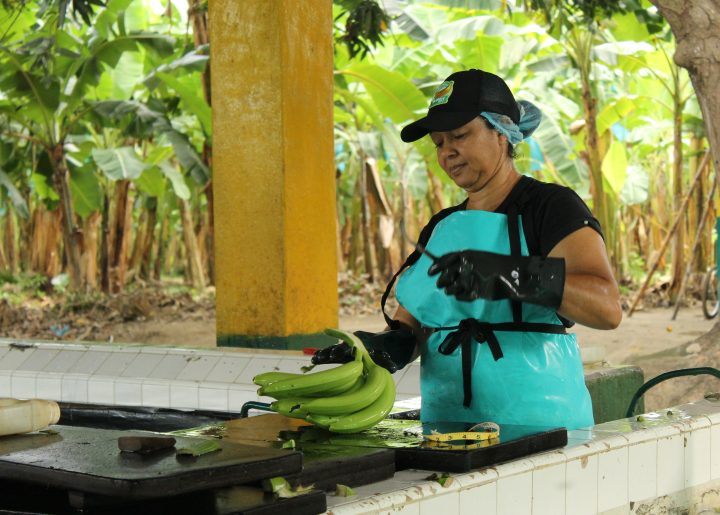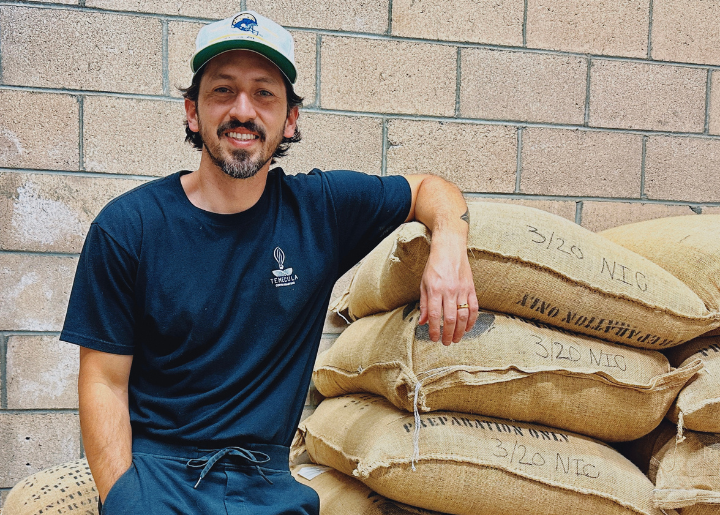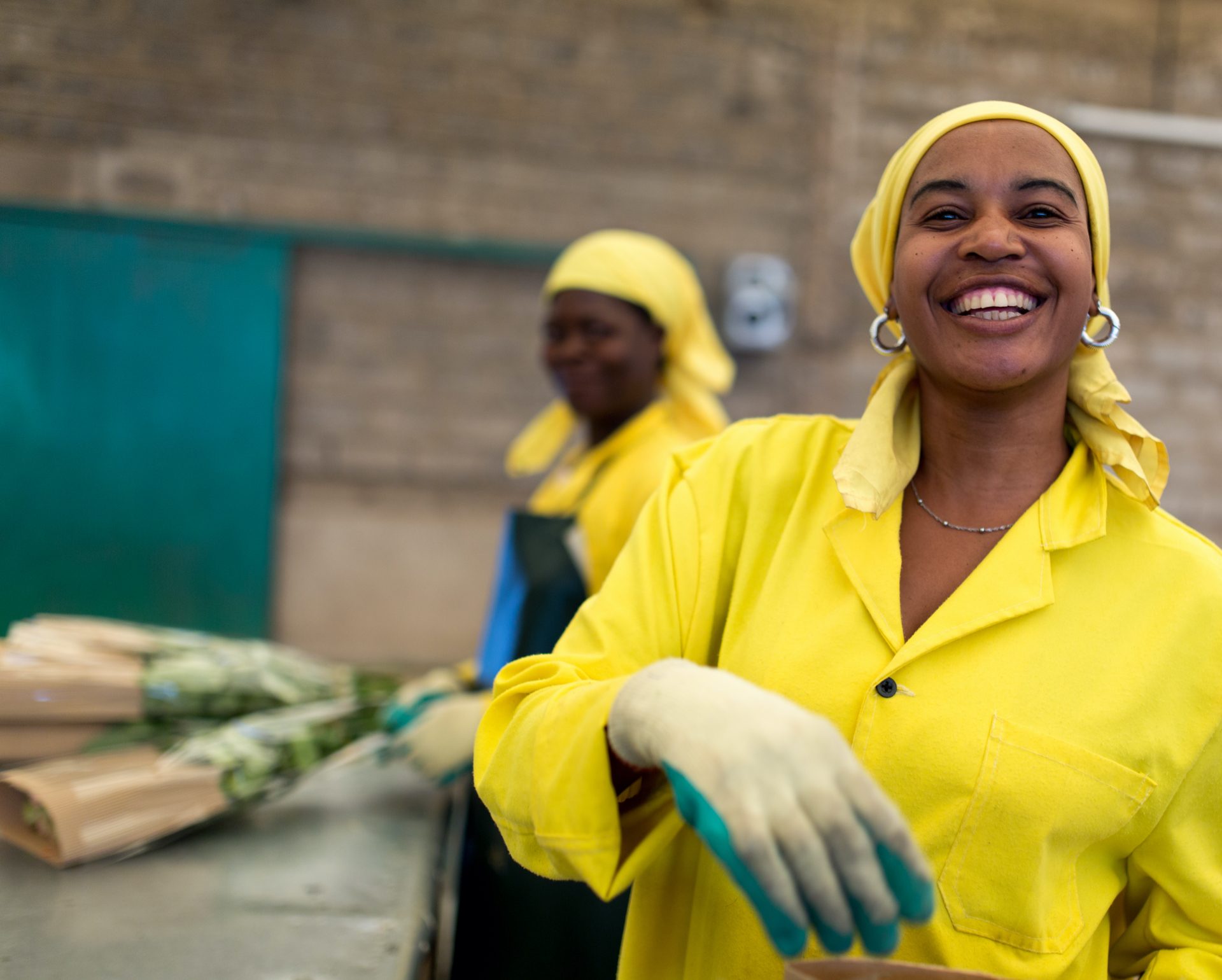The Pope, Climate Justice and Fairtrade
Today, outside the Fairtrade America offices, Pope Francis will drive by in the popemobile as part of the papal parade during his three day visit to Washington, DC. One of his points of discussion he is likely to make in his address to Congress on Thursday will be on the issue of climate change, or rather, climate justice.
We all know more or less what climate change is, but what is climate justice? Our friends at Ben & Jerry’s describe it best, saying, “For us, the issue of climate change is not just an environmental issue. It’s a serious threat the poorest and most vulnerable people on the planet…”
This problem has largely been caused by wealthy, developed nations of the global north, while the least developed nations of the global south are most at risk, and have the least resources to adapt to a rapidly warming world. It’s a matter of human rights and social justice.
Ben & Jerry’s
In May 2015, the Pope published a 200-page Encyclical Letter on Caring for our Common Home (i.e. the Earth). In it he says:
“Climate change is a global problem with grave implications: environmental, social, economic, political and for the distribution of goods. It represents one of the principal challenges facing humanity in our day. Its worst impact will probably be felt by developing countries in coming decades. Many of the poor live in areas particularly affected by phenomena related to warming, and their means of subsistence are largely dependent on natural reserves and ecosystemic services such as agriculture, fishing and forestry. They have no other financial activities or resources which can enable them to adapt to climate change or to face natural disasters, and their access to social services and protection is very limited. For example, changes in climate, to which animals and plants cannot adapt, lead them to migrate; this in turn affects the livelihood of the poor, who are then forced to leave their homes, with great uncertainty for their future and that of their children. There has been a tragic rise in the number of migrants seeking to flee from the growing poverty caused by environmental degradation. They are not recognized by international conventions as refugees; they bear the loss of the lives they have left behind, without enjoying any legal protection whatsoever. Sadly, there is widespread indifference to such suffering, which is even now taking place throughout our world. Our lack of response to these tragedies involving our brothers and sisters points to the loss of that sense of responsibility for our fellow men and women upon which all civil society is founded.”
Fairtrade is working hard to help farmers combat the effects of climate change, which hits poor small-scale farmers in developing countries disproportionally. First, there is the difference that Fairtrade has always made. For example, many activities and investments that can help farmers mitigate the effects of climate change, or adapt to it, are necessarily collective activities―work that has to be done by many farmers, or a whole community, to be effective. Today the international Fairtrade system partners with over 900 farmer cooperatives and similar organizations around the world to help them gain access to international markets, increase and stabilize their income, increase their technical capacities and much more. And when Fairtrade helps to make a farmer co-op stronger, it means that their community is that much better equipped to confront climate change.
But Fairtrade recognizes that climate change is a powerful and systemic threat that requires an additional response. This is why more recently we’ve initiated a collection of activities to further assist farmers and to raise awareness of the serious threat posed by climate change.
Among those efforts we are piloting new ways of working with coffee farmers to mitigate the spread of coffee rust, a fungus which is made worse by climate change and which in recent years has been devastating coffee crops throughout Latin America. Read more about one such pilot project here.
We welcome Pope Francis to Washington, DC, and hope his message of empowering those who are most vulnerable is taken to heart and turned into substantive, comprehensive actions.
Topics
We’re in this together
Fairtrade America partners with brands on the journey to certification and beyond. We can help with everything from finding a certified supply chain to marketing your newly certified product.
Get in Touch



